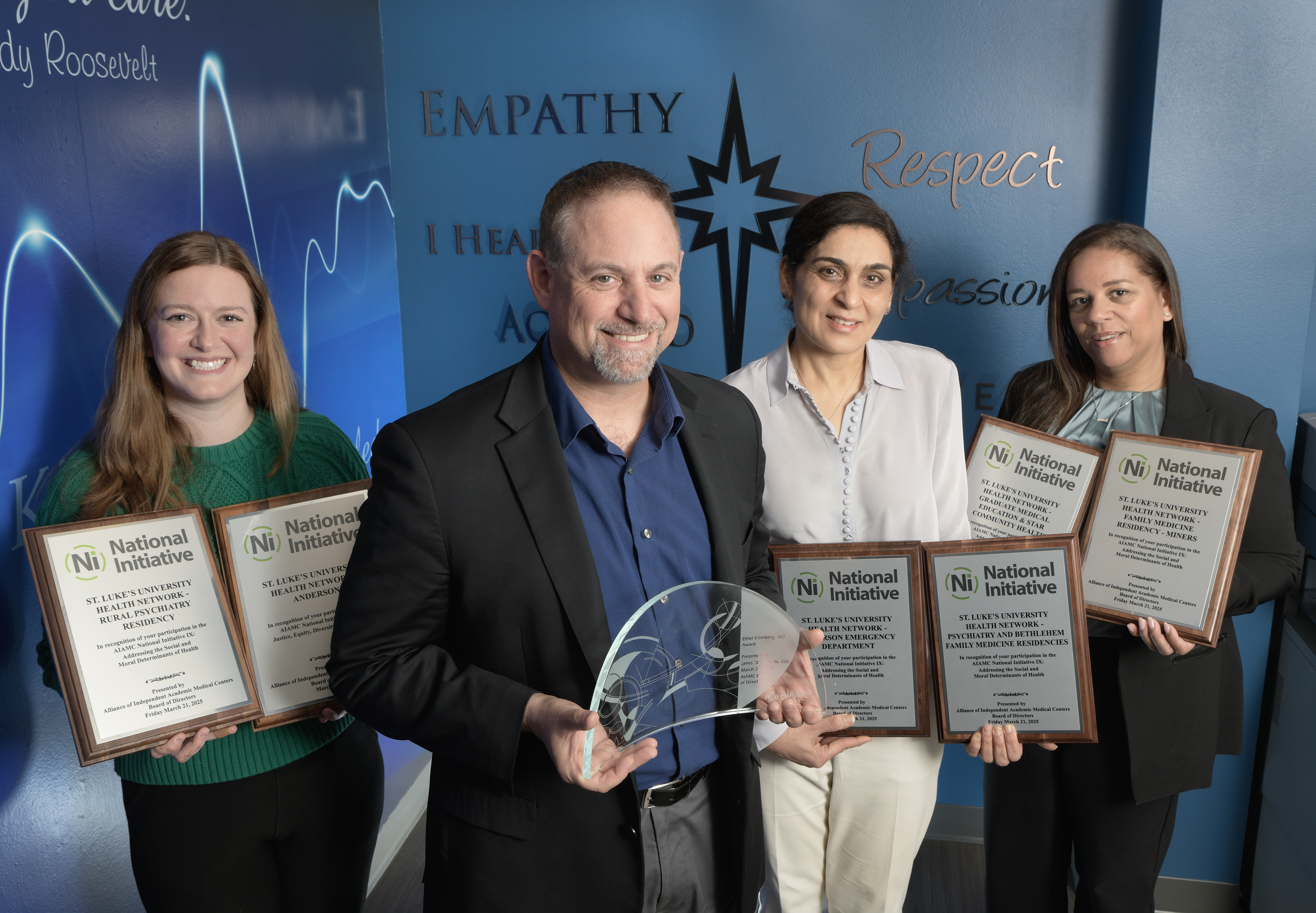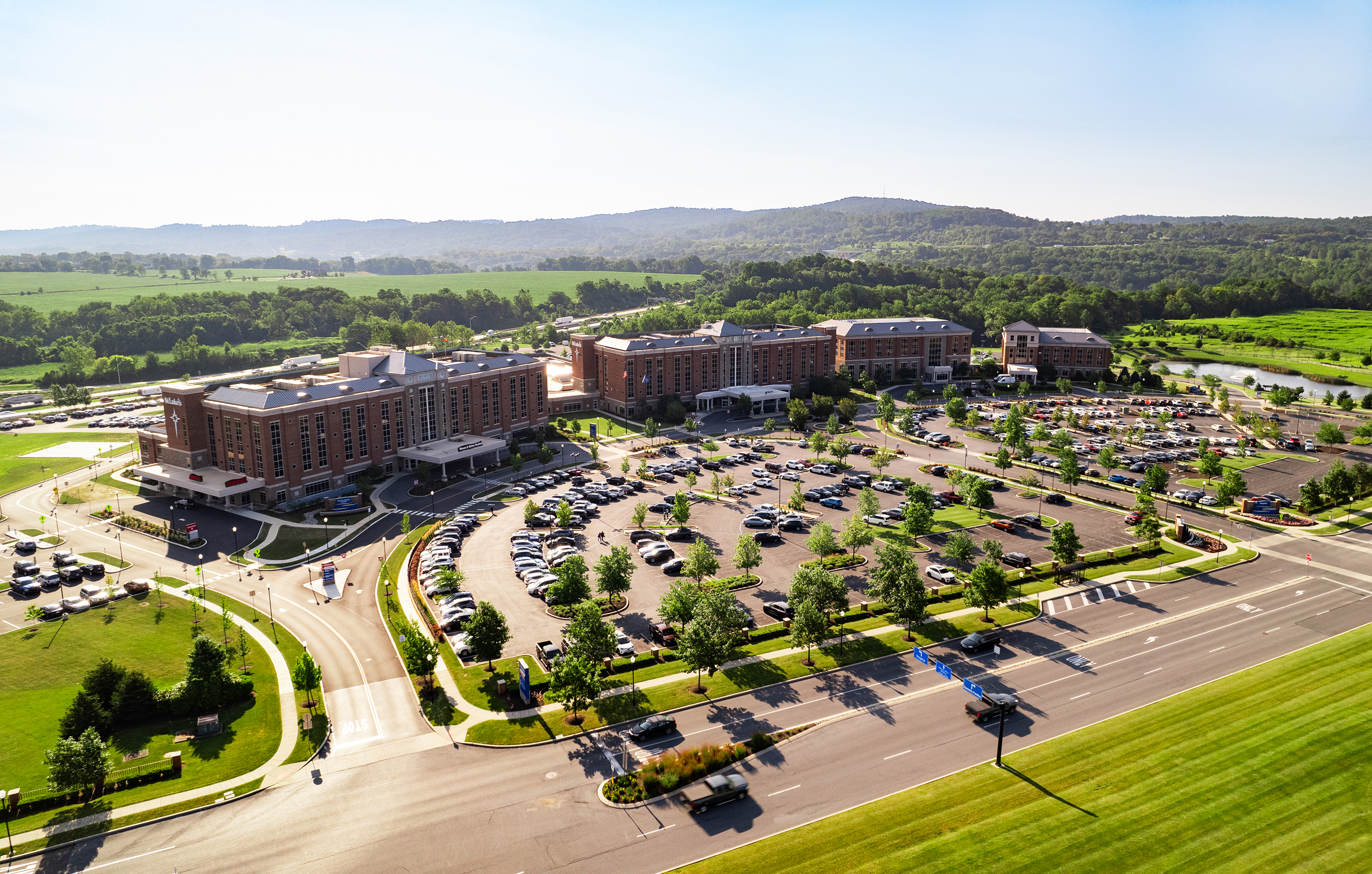First COVID Patient Treated at Upper Bucks Campus Returns to Bring Thanks
May 27, 2021

Michele Grida’s caregivers at St. Luke’s Upper Bucks Campus celebrated her survival during Grida’s visit to the hospital to thank the staffs of the ICU and Third Floor. Pictured from left: Brenda Costello, RN, Melissa Juchno, RN, Paige Lieberman, RN, (Grida), Megan Maskornick, RN, and Sharon Michael Rogers, RN.
Michele Grida paid a return visit to St. Luke’s Upper Bucks hospital, buoyed by a renewed sense of gratitude and purpose. This was the one-year anniversary of her fever-induced collapse and emergency admission to the ICU with a near-fatal case of COVID. She went back to say thanks to her caregivers, where she was the first COVID patient to be treated at the new hospital.
“I don’t take a single day for granted,” says the 50-year-old resident of Richlandtown. “It’s my new philosophy on life.”
Thanks to the staff at St. Luke’s Upper Bucks, Grida has come a long way in a year, surviving the respiratory virus and regaining her sense of self and her life’s priorities. She brought lunch from Sal’s Pizza Randa to the hospital’s ICU and third floor, where the doctors and nurses had wrenched her from COVID’s menacing grasp last year.
“I remember that day we intubated Michele at Upper Bucks,” says ICU nurse Gisele Commins, RN, BSN, CCRN. “She was our very first COVID-19 intubation. I held the phone so she could hear her husband's voice while she was on the ventilator. Michele had a long and complicated illness but seeing her makes all the hard work worth it and gives me hope that my patients can recover.”
Megan Maskornick, RN, who took care of Grida on the medical-surgical unit after she had left the ICU, recalls how weak her patient was. “Michele needed help taking steps to get to a chair or the bathroom. She had really gone through the ringer with this virus.”
But on her visit to the unit in March, Maskorknick says, “She looked amazing. She has a glowing smile and was truly thankful for all that we did for her. I was so happy to see how far she has come.”
Grida was proud to go there fully ambulatory for the first time back. “I’m walking on my own, no walker, wheelchair or cane,” beams the director of Quality Improvement for the Penn Foundation.
As she continues to regain her strength, both physical and emotional, her outlook continues to evolve, too. “I don’t ask ‘why me,’ but I’m thankful, especially to the nurses who have a passion for saving lives,” she says. “I want to be passionate like the nurses and leave a legacy.”
Surviving the infection that has left more than a half-million Americans dead sparked the change in her life’s narrative. Awareness and empathy for others’ struggles are more in her thoughts than ever, she admits.
“I’ve become more mindful of what people are going through, especially family and friends.”
Read More NewsLatest News


April 10, 2025
National Recognition for SLUHN Graduate Medical Education

April 09, 2025
In Safe Hands Award

April 08, 2025